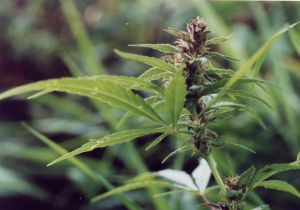Marijuana Remains a Schedule I Narcotic, Per Federal Court Ruling

An effort by a California-based advocacy group in a D.C. federal court for the reclassification of marijuana under federal law has failed.
Our Fort Lauderdale criminal defense lawyers know this is likely to have little impact in our state, where the drug is deemed illegal for both medical and recreational purposes. Had the advocacy group been successful, it would have likely meant an overhaul to marijuana laws nationwide.
Undoubtedly, this will not be the last time such an argument is made. Given the rapid progression of the national conversation on the issue, tending now toward favor of legalization, combined with the fact that the D.C. court’s decision was split 2-1, we may yet see change in this regard in the coming years.
In the meantime, marijuana will retain its classification as a Schedule 1 narcotic. What this means is that it is deemed on par with heroin and worse than cocaine and even methamphetamine in terms of addiction and its lack of any medically-recognized purpose.
Of course, this classification flies in the face of logic regarding what we know of the drug and the way it is prescribed to ailing patients by hundreds of thousands of medical doctors across the country each year. In all, 20 states and the District of Columbia have legalized marijuana for medical use and voters in two states – Washington and Colorado – just recently approved legalization for small amounts for recreational use as well.
Attorneys for the advocacy group contended that federal, state and local authorities are bias against the drug, and routinely exaggerate its dangers while ignoring the potential benefits.
However, lawyers for the Drug Enforcement Administration countered that in order to have accepted medicinal purposes under the law, a drug’s effectiveness would have to be tested in a study that was well-conducted, well-designed, well-documented and involved a large number of people. The DEA contended that no such studies exist, and the Court of Appeals for the District of Columbia concurred.
In an interesting opinion penned by the majority, the justices conceded that while marijuana “could” have certain medical benefits, the lack of research on the issue prompted them not to overturn the DEA’s current classification.
Of course, this argument rings hollow when you consider that the advocacy group presented evidence of some 200 scientific studies on the drug that point to its medical benefits.
Because of this, the group said it intends to appeal to the U.S. Supreme Court.
In Florida, marijuana-related charges carry stiff penalties. This is one state that has not jumped on the bandwagon when it comes to leniency for offenders caught with pot.
For example, possession of less than 20 grams of marijuana carries a maximum of 1 year in jail and a fine of $1,000. Any more than that, and is a felony, punishable by 5 to 15 years in prison, with fines of up to $10,000.
Sale of marijuana is even more serious. Selling or distributing less than 20 grams is still a misdemeanor punishable by up to a year in jail, but it also comes with a maximum $10,000 fine. Sale of 25 pounds or less can get you five years in prison and a $5,000 fine. Anything above that, you are looking at a minimum three years in prison or a maximum of 30 years, with fines ranging from $5,000 to $200,000.
Even just possessing paraphernalia can result in a 5-year prison term.
And don’t forget – a conviction will also mean you’ll lose your driver’s license for two years.
If you are charged with a crime in Palm Beach or Broward counties, contact the Law Offices of Leifert & Leifert, a Partnership of Former Prosecutors, for a free consultation to discuss your rights. Call 1.888.5.DEFEND.
Additional Resources:
Marijuana still a drug with no accepted medical use, court says, Jan. 22, 2013, By David G. Savage, The Los Angeles Times
More Blog Entries:
Crime Labs Notoriously Unregulated, Error-Prone, Jan. 25, 2013, Fort Lauderdale Criminal Defense Lawyer Blog







